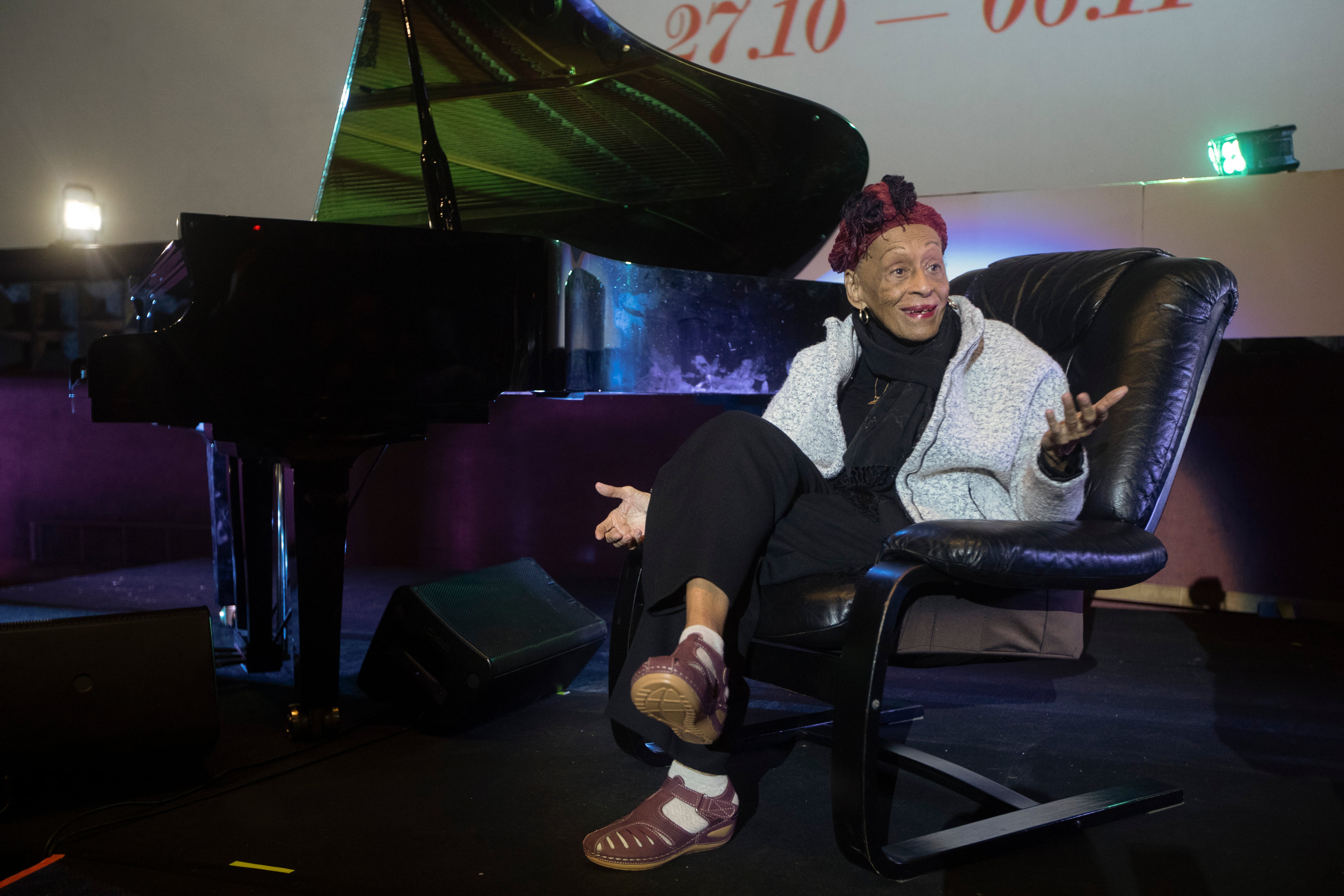Billboard‘s International Power Players list recognizes the leaders that are driving the success of the music business in countries outside the United States. Avex’s CEO, Katsumi Kuroiwa, was chosen from the music industry leaders of the world for inclusion in the list for the second consecutive year. Billboard Japan interviewed Kuroiwa upon his selection for the list and talked with him about the response to ONE OR EIGHT and the issues Avex faces when creating global hits.
You were selected for inclusion in the Billboard International Power Players in recognition of AEGX’s success in bringing artists like Ed Sheeran and Taylor Swift to perform in Japan. It seems like this collaboration with AEG has truly gained steam in the post-pandemic era.
Katsumi Kuroiwa: In February, Taylor Swift played four days of shows in Tokyo Dome. There was huge demand for tickets, both from Japanese and overseas fans. There was particularly high demand from overseas fans, primarily in China and Southeast Asia, so I think the shows also had a major economic impact.
The newspapers were talking about it, too.
Kuroiwa: Taylor Swift’s only stops in Asia were Tokyo and Singapore, so the shows really drew a lot of attention. We need to make sure that when major artists like that come to Asia on tour, they never skip Japan, no matter what. For artists, performing in Japan is somewhat of a status marker, so we communicated closely with AEG members to provide a high level of hospitality.
In last year’s interview (https://www.billboard-japan.com/special/detail/411), you said “we can shift from these being isolated successes to a tide that creates a new market.” Just recently, boy band ONE OR EIGHT made their debut and took the top spot on Billboard’s Heatseekers chart dated August 28. How do you see the response to the band?
Kuroiwa: Last May, we strategically invested in S10 Entertainment, a U.S.-based management company, through Avex USA, and we reinforced our overseas expansion efforts. As part of that, ONE OR EIGHT has also been coordinating closely with Avex USA. Their debut song, “Don’t Tell Nobody,” was produced by David Stewart and OneRepublic’s Ryan Tedder, and the band is being managed by an international team with members from the U.S., Japan, and Korea.
Creating a global hit song is extremely difficult, but we’re not one of the big three record companies, so without going after foreign revenue, I don’t think we could survive.
Do you think anime tie-ups are essential to producing global hits?
Kuroiwa: I want a hit anime tie-up so badly I can taste it (laughs). I’ve been really impressed with Creepy Nuts and YOASOBI. Of course, simply releasing a tie-up isn’t all there is to it. It’s also important that the tie-up matches the artist’s vibe. The scale of exports from the anime industry is totally different from the music industry, so I think anime plays an important role in expanding the global reach of Japanese music.
In September 2023, we launched the Global Japan Songs Excl. Japan chart, which ranks Japanese music that’s become a hit overseas. I feel like Japan’s music industry has kicked it into higher gear. Physical media sales still account for a lot in Japan. Do you think there’s any potential for physical media sales in the global market?
Kuroiwa: I think it depends on the country and the artist. I recently went to Korea, for the first time in a while. They’ve seen a lot of growth in CD sales over the past few years, but not because people have gone back to listening to music on CD. Instead, CDs are seen as merchandise, and there has been some discussion about whether or not those sales should be reflected in music rankings. I was surprised to hear that one artist recently sold their CD with an artist-branded CD player. I heard that it sold extremely well, and 30 or 40 percent of the people who went to shops to buy it were Japanese. But the values people have, and the way they listen to music, varies by country, so it would be hard to successfully apply that same approach in the U.S., for example.
What potential do you see for Japanese artists?
Kuroiwa: Looking at the Billboard JAPAN charts, I see a lot of different things going on. There are times when an artist will take a top position in the first week after their debut but then fall immediately out of the rankings, but on the other hand you have artists like Mrs. GREEN APPLE that stay on the charts week after week. For Avex, Da-iCE has been releasing steady hits recently.
Going forward, we’ll be putting even more energy into our overseas efforts, but we need to keep creating hits inside Japan, too. I think the biggest pitfall to avoid now is immediately setting out to take on the overseas market as soon as an artist has had a little success in Japan. The approach used in creating a hit in Japan is totally different than that used to create a hit in the U.S., and (the industry) needs to change the way they think about that.
Japanese anime and games have achieved some degree of market share worldwide, but for music, there’s still a long way to go. What challenges do you think the Japanese music industry still faces?
Kuroiwa: Compared to games and anime, Japan’s music industry has only recently really tried to take on the global market. Japan’s video game consoles saw the world as their market from the very start, and the Anime Expo has been going on for over 30 years now. These industries have been engaging with the world and establishing their own cultures.
If I could digress for a moment, we operate Anime Times, an unlimited anime streaming channel, together with companies like Kodansha, Shueisha, and Shogakukan. In expanding it overseas, the biggest challenges we’ve faced have been subtitling and casting voice actors. There have been discussions about the potential for AI to help resolve these problems. If viewers could watch anime in their local languages, but with the voices of the original voice actors, that could further boost exports. So I think the anime industry still has a lot of potential for future overseas growth.
When it comes to music, though, I feel like the number of artists who create music with overseas audiences in mind is still incredibly small. The industry is based around production in Japan—achieve success in Japan and then set your sights on the international market, that sort of thing. I think that’s what’s keeping Japanese music from spreading organically worldwide.
The way you make music differs completely based on what markets the artists and staff are looking to. Over the past few years, a lot of artists have been trying to tackle overseas markets, and those efforts have created a foundation of taking on these challenges. We’re also seeing a gradual increase in the number of successes. As more and more artists achieve overseas success, they’ll form a critical mass that will play an important part in the content industry.
In Korea, this was achieved through the public and private sectors working together. I want us to look to their example as we strive to take on overseas markets ourselves.
Avex has continued to grow by actively partnering with foreign companies like AEG or S10 Entertainment. Are there any philosophies you share with your employees regarding the future growth of your business?
Kuroiwa: Yes, “always generate buzz” and “keep taking on new challenges.” I believe that if our employees do the kinds of things that make friends and family members say “Your company is amazing,” this will, ultimately, contribute to improved business performance. Another is our tag line, “Really! Mad+Pure.” People aren’t receptive to “mad” alone, and “pure” alone doesn’t generate buzz, but I think our company has a good balance of both.
We’re a newcomer to the Japanese recording industry, founded in 1988. We found openings during the height of the CD sales boom, working passionately to do things that nobody else was doing. I tell our employees that it’s vital that we never lose that mentality of looking for new openings and taking on new challenges.
—This interview by Seiji Isozaki and Naoko Takashima first appeared on Billboard Japan





























